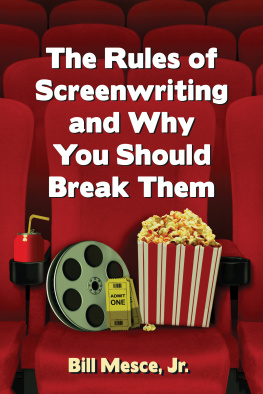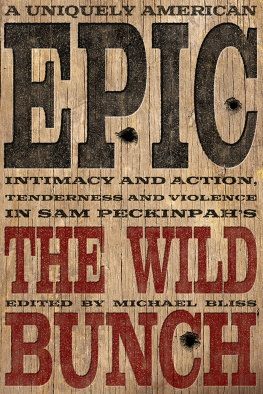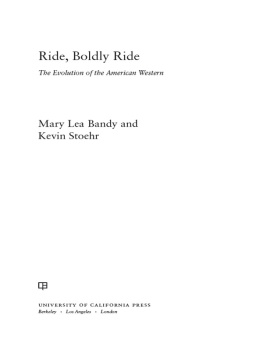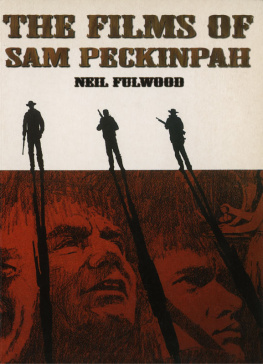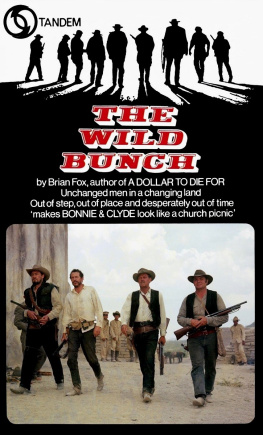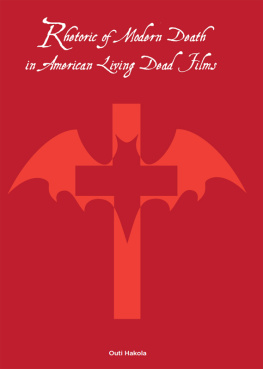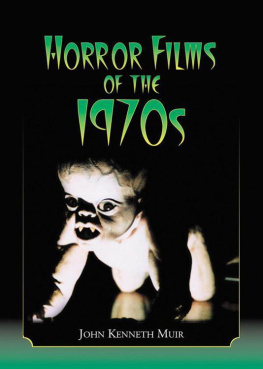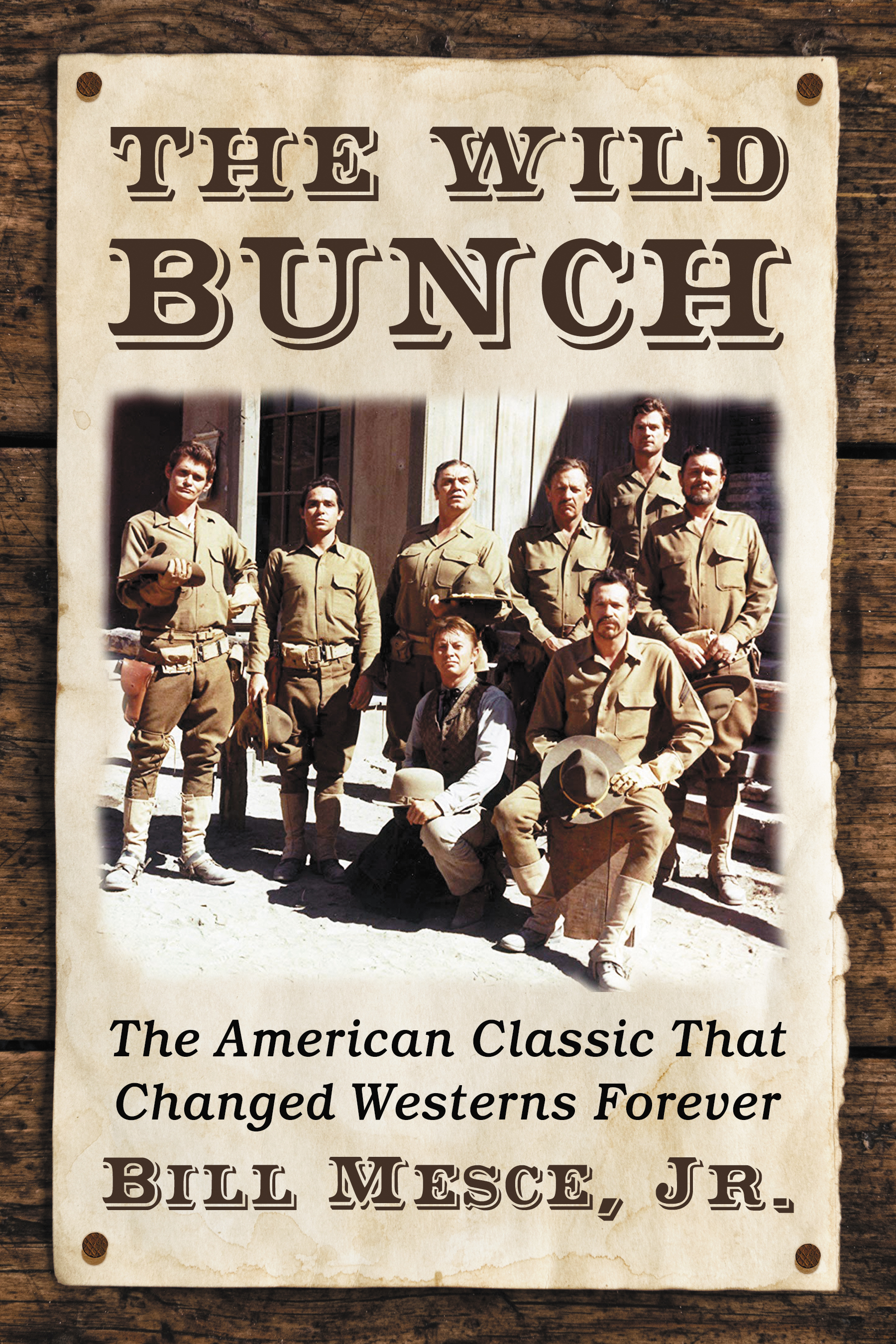Inside the Rise of HBO: A Personal History of the Company That Transformed Television (2015)
2019 Bill Mesce, Jr.. All rights reserved
No part of this book may be reproduced or transmitted in any form or by any means, electronic or mechanical, including photocopying or recording, or by any information storage and retrieval system, without permission in writing from the publisher.
Front cover: Publicity photograph of the cast of the 1969 film The Wild Bunch (Warner Bros.Seven Arts)
In memory of Newarks Elwood Theater where my mom sent me almost every Saturday afternoon which led to this.
Acknowledgments
For research assistance, the author wishes to thank Kathleen Bryant-Turitz, Bill Maass, and Maribel Mesce.
Photographs courtesy of Jerry Ohlingers Movie Material Store, Inc., of New York City.
Special thanks to Bill Marlborough and the staff at JOMMS.
Another special thanks to Kimberly Verhines at Stephen F. Austin University Press for her assistance with some of the photographs in this book.
Unless otherwise noted, box office figures are from website Box Office Mojo.
Also thanks to these contributors:
Gerald Abrams: Emmy-nominated producer of over 70 films for TV including Nuremberg (2000) and Houdini , the top-rated cable miniseries of 2014.
Jeff Bewkes: Named CEO of Home Box Office in 1995, then elevated to CEO and Chairman of the Board of Time Warner (now WarnerMedia) in 2009, leaving after TWs successful merger with AT&T in 2018.
Abraham Gordon: Head of development for Spectacor Pictures in the mid1990s.
Marshall Fine: Journalist, critic and author who has served as nationally syndicated film and TV critic and entertainment writer for Gannett News Service, and film and TV critic for Star magazine. His several books include Bloody Sam: The Life and Films of Sam Peckinpah.
Youssef Kdiry: After six years as a film programmer for pay-TV giant Home Box Office, Kdiry set up his own film review site, The MoonStar Film Odyssey.
Brian Marks : Film critic and arts journalist from the Midwest, now based in Los Angeles. His writing has been published in The Los Angeles Times , The Village Voice , LA Weekly , and Sordid Cinema .
Bill Persky: Five-time Emmy-winning writer/producer/director whose credits include The Dick Van Dyke Show , That Girl , and Kate & Allie.
David L. Robbins: Bestselling author and playwright whose twelve novels include War of the Rats , The End of War , The Low Bird. He is currently a visiting professor teaching advanced creative writing in Commonwealth Universitys honors college.
Josh Sapan: CEO of AMC Networks.
Betty Jo Tucker: Betty Jo Tucker serves as editor/lead film critic for ReelTalk Movie Reviews and writes film commentary for the Colorado Senior Beacon . She also hosts Movie Addict Headquarters on BlogTalkRadio.
Stephen Whitty: Long-time journalist, critic and teacher, who also writes fiction and does consulting work for studios. He is the author of The Alfred Hitchcock Encyclopedia .
Introduction
Since I cannot rouse heaven, I intend to raise hell.
Josh (David Warner) in The Ballad of Cable Hogue
Fifty years.
The world can change in a half-century; not a little bit, but so much so that if someone from then could visit now , people of today wouldto steal a line from Planet of the Apes (1968)think you were something that fell out of a tree (Schaffner).
Fifty years ago the hippie movement was in full flower: ragged bell-bottom jeans, Army surplus jackets, peasant skirts and sandals, peace signs and love beads, long hair, acid, grass, magic mushrooms, free love, Woodstock. At the other end of the demographic scale, businessmen looked, well, the same way businessmen have always looked (and still do): narrow lapels, short hair, cuffed pants and brogans. Somewhere in between were the self-styled cool suburbanites in broad lapels, shag cuts, ankle boots, Peter Max ties, Nehru jackets, mini-midi-maxi skirts with go-go boots (Knauer, America 7879). One emblematic story of the time from my mother: going to a party, being introduced to a newly-minted young priest who opened up his somber black jacket to reveal an explosively paisley lining.
Six years after The Beatles had opened the modern rock era in 1963 with bouncy but innocent tunes like Love Me Do and Please Please Me, rock had grown more ambitious with The Whos rock opera Tommy , and darker and more carnal with Led Zeppelins Whole Lotta Love (Knauer, 1968 44). The top three TV series in 1961 had been Wagon Train , Bonanza , and Gunsmoke , but in 1969 it was the transgressive Rowan & Martins Laugh-In with its rapid-fire humor confronting issues of race, politics, and sex, while The Smothers Brothers Comedy Hour had finally lost its long-running battle against CBS execs who cancelled the show forin the networks eyesgoing too far in its ruthless lampooning of government, religion, social conventions, and in its obvious anti-war sentiments (Brooks 1262; 1264; 949).
The war the Smother Brothers were so anti about was grinding on in Vietnam. Three years after U.S. Marines had landed on the beaches at Da Nang, Richard Nixon was elected president, in part for campaigning on getting America out of the warand then in 1969 began withdrawing troops so gradually that nearly half of the nations 58,000 war dead would be suffered in the four years after Nixon took office (Vietnam War).
In one of the most-viewed events in television history, people around the world watched in amazement as Neil Armstrong stepped onto the surface of the moon, the first human being to walk on an alien landscape, a startling technological advance coming just eight years after Soviet astronaut Yuri Gagarin became the first man to travel into space (Barnouw 427).
The Cold War was still on, it was yet another summer of race riots in inner cities, and, antagonized by the war in Vietnam, the psychological gap between young and old had never been wider. America had witnessed, in the short span from 1963 to 1968, the assassinations of a young, inspiring president in John F. Kennedy, a champion of civil rights in Martin Luther King, and a presidential hopeful in Robert F. Kennedythe nations young hoped he could course-correct a country they saw as going horribly wrong (Knauer, America 8081).
And on June 18, 1969, Sam Peckinpahs Western The Wild Bunch premiered in Los Angeles. Afterward, Peckinpahs career, the Western genre, and American movies would never be the same.
But then, neither would America.
* * *
Fifty years.
In an odd bit of synchronicity, thats about the same span, give or take, from the beginning of the classical Western period1860to the setting of The Wild Bunch , put by various sources as 19131914 (Wright 5). That period also covers most, if not all, in some cases, of the life span of the movies main characters. The men of the Bunch would have seen a time when personal transportation was defined solely by the horse replaced by the first mass-produced automobiles and the early years of powered flight; muzzle-loading rifles and the first generation of cap-and-ball revolvers give way to pump-action shotguns, semi-automatic pistols, bolt-action rifles, and machine guns.


